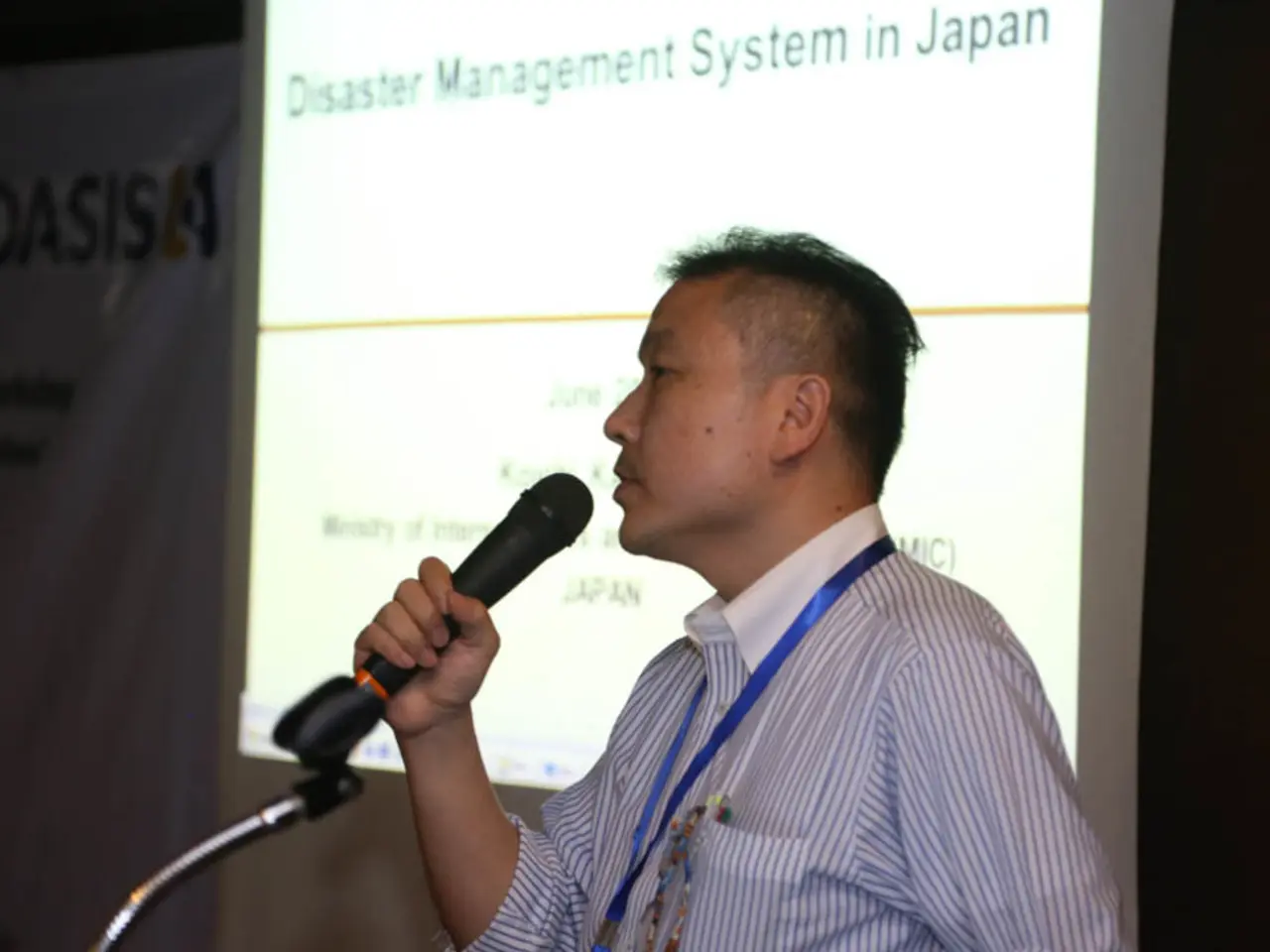Mass Evacuation of 1.4 Million Coastal Residents in Chile Due to Pacific Tsunami Alert
In a series of events that have sent shockwaves across the Pacific, a powerful earthquake off the coast of Russia has triggered a tsunami alert, prompting evacuations in coastal cities across the globe.
The earthquake, reported to have a magnitude of 6.9 by the US Geological Survey, occurred at midday, causing sirens to sound in coastal cities and mobile alerts to be sent to residents. The population has since been waiting for nearly 10 hours in secure locations, a testament to their strict adherence to instructions during the evacuation.
Authorities have praised the population for their compliance, with Álvaro Elizalde, the Minister of the Interior in Chile, expressing his gratitude and congratulations to all Chileans. This compliance is particularly significant given the tragic events of 2010, when a tsunami caused 150 deaths in Chile due to late alerts.
The danger posed by such events is not new. A large earthquake beneath the ocean can generate tsunamis that travel across the entire Pacific Ocean basin. This happens when the seafloor experiences a sudden vertical displacement, displacing the water column above and creating a surge of water that forms tsunami waves. These waves can travel at speeds of up to about 800 km/h in deep ocean water.
To mitigate such risks, tsunami warning systems have been put in place. These systems can detect the earthquake first and model the tsunami’s propagation, allowing for early warnings over the entire Pacific basin, including countries and islands thousands of kilometers away such as Japan, the US, Chile, Ecuador, and Hawaii.
In Chile, the evacuation order has been maintained as a precaution, covering approximately 3,800 kilometers of coastline, from the northern to the central south. The residents of Valparaiso, one of the affected cities, have expressed fear due to receiving evacuation messages throughout the morning.
Since the tragic events of 2010, Chile has strengthened its tsunami warning system, aiming to ensure a swift and effective response to such threats. As the situation continues to unfold, the world watches and hopes for the safety of all those affected.
In the aftermath of the recent tsunami alert, political figures have shown increased interest in the country's tsunami preparedness. For instance, Chile's Minister of the Interior, Álvaro Elizalde, praised the population's quick response and expressed concern about the general-news event, emphasizing the importance of their compliance in such critical situations, given the country's history with tsunamis, as seen in 2010. Meanwhile, discussions regarding the nation's readiness to handle such emergencies have surfaced in environmental and political forums, with crime-and-justice implications if proper precautions are not taken.







